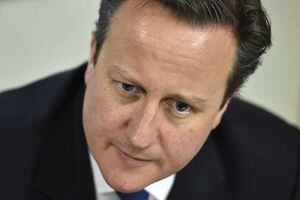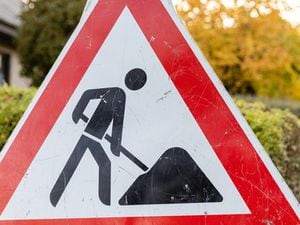Pension off the perks? Play fair
The baby boomers' parents promised them a comfortable old age and if that means higher taxes for young people, well hard luck.

It's only fair. The oldies have earned it, writes Nigel Hastilow.
That, at least, is the attitude of many people approaching retirement age.
They certainly believe they've paid taxes all their lives and it's about time they got some of their money back.
The generation born after the end of the Second World War, through the 1950s and 60s, is approaching retirement and starting to discover the aches and pains of old age.
In many ways they – and even more so their own parents, now in their 80s and 90s – have never had it so good, compared with previous generations.

They are living longer, have better health care, many have the last of the fur-lined final-salary pension schemes and their houses have soared in value over the years giving them unprecedented wealth.
They enjoy ever-rising state pensions.
They even get perks like free bus passes, winter fuel allowances, free prescriptions and free TV licences – even though many don't need this State-funded generosity and wouldn't be seen dead travelling by bus.
It's worth a total of £7.5 billion but austerity seems to stop if you're over 65 even though research this week says pensioners are better off than ever before.
They are among the richest 40 per cent yet their children and grandchildren struggle to find decent jobs, get on the housing ladder, repay their student loans and stay solvent while meeting their tax demands.
So why is Prime Minister David Cameron promising there won't be any means-testing of pensioners' perks?
He says: "We need to make sure that we are fair as we reduce the deficit.
"The fact is, if something happens to you when you're old, or to your income, you can't as easily change your circumstances as younger people can."
But in an age of austerity when the cuts we've already seen will be succeeded by deeper cuts to come, it surely can't make sense to give more to those who already have money at the expense of those who don't.
Except it makes perfect sense for a politician seeking re-election in a few weeks' time.
That's because the older you get, the more likely you are to vote.
At the 2010 General Election, 76 per cent of the over-65s voted compared with just 44 per cent of those aged 18-24.
The turnout rises as the voter's age rises. The second group most likely to vote are those aged 55-64 – the almost-pensioners – where 73 per cent went to the polls last time.
The grey vote is therefore crucial to the election prospects of every party so if they show a bias in favour of the elderly, at the expense of younger people, you can hardly blame them.
The short answer for anyone under 55 who thinks this all very unfair is to get out and vote. The more power you wield at the ballot box, the more likely it is that politicians will pay attention to you.

But in the longer-term, it may be the elderly who should be worried.
There is no cast-iron guarantee that State pensions will rise in line with inflation for ever. Indeed, this Government is increasing the retirement age, forcing many people to work longer.
That will save the taxpayer £500bn, over several decades, according to Mr Cameron.
But it won't stop the elderly being a growing financial burden on the State given their need for long-term care, NHS treatment and pensions as they live well into their 90s and beyond.
There could come a point, though, when the promises made by politicians over the years prove to be of little real worth.
If the tax burden on younger people rises, and their standard of living continues to fall, they might well start to resent the costs they are incurring to keep the baby-boomers in the manner to which they have become accustomed.
This could get nasty – especially as the postponement of the retirement age will mean older workers cling onto their jobs for longer and deny their younger colleagues the chance of promotion.
It is not impossible to imagine a time when younger people get tired of all this generosity towards their parents and grandparents.
Something may well have to change. For years we have been taught to think of pensioners as frail and impoverished. And, of course, many of them are.
But many more are both healthy and wealthy. Hopefully, they will use their affluence to help out their children and grandchildren.
They would be wise to do so because if the inequality gap between the generations continues to grow, politicians won't be able to pander to the grey vote any more.
Younger voters will want to be heard. They will demand the very thing Mr Cameron is promising the elderly – fairness.





